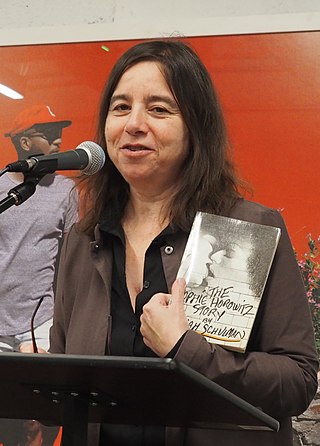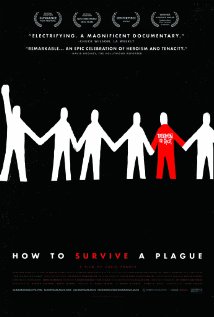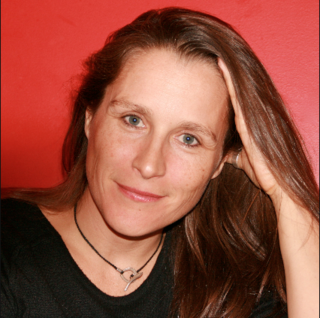Related Research Articles

Zidovudine (ZDV), also known as azidothymidine (AZT), was the first antiretroviral medication used to prevent and treat HIV/AIDS. It is generally recommended for use in combination with other antiretrovirals. It may be used to prevent mother-to-child spread during birth or after a needlestick injury or other potential exposure. It is sold both by itself and together as lamivudine/zidovudine and abacavir/lamivudine/zidovudine. It can be used by mouth or by slow injection into a vein.
The management of HIV/AIDS normally includes the use of multiple antiretroviral drugs as a strategy to control HIV infection. There are several classes of antiretroviral agents that act on different stages of the HIV life-cycle. The use of multiple drugs that act on different viral targets is known as highly active antiretroviral therapy (HAART). HAART decreases the patient's total burden of HIV, maintains function of the immune system, and prevents opportunistic infections that often lead to death. HAART also prevents the transmission of HIV between serodiscordant same-sex and opposite-sex partners so long as the HIV-positive partner maintains an undetectable viral load.

AIDS Coalition to Unleash Power is an international, grassroots political group working to end the AIDS pandemic. The group works to improve the lives of people with AIDS through direct action, medical research, treatment and advocacy, and working to change legislation and public policies.

The GMHC is a New York City–based non-profit, volunteer-supported and community-based AIDS service organization whose mission statement is to "end the AIDS epidemic and uplift the lives of all affected." Founded in 1982, it is often billed as the "world's oldest AIDS service organization," as well as the "nation's oldest HIV/AIDS service organization."

Sarah Miriam Schulman is an American novelist, playwright, nonfiction writer, screenwriter, gay activist, and AIDS historian. She holds an endowed chair in nonfiction at Northwestern University and is a fellow of the New York Institute for the Humanities. She is a recipient of the Bill Whitehead Award and the Lambda Literary Award.
This is a timeline of HIV/AIDS, including but not limited to cases before 1980.
Immune reconstitution inflammatory syndrome (IRIS) is a condition seen in some cases of HIV/AIDS or immunosuppression, in which the immune system begins to recover, but then responds to a previously acquired opportunistic infection with an overwhelming inflammatory response that paradoxically makes the symptoms of infection worse.
Vorinostat (rINN), also known as suberoylanilide hydroxamic acid, is a member of a larger class of compounds that inhibit histone deacetylases (HDAC). Histone deacetylase inhibitors (HDI) have a broad spectrum of epigenetic activities.
Treatment Action Group (TAG) is a U.S.-based organization that has been prominent within the movement of HIV/AIDS activism. Being formed in 1991, it has possessed the goals of working with worldwide efforts to increase research on treatments for HIV and for deadly co-infections that affect individuals with HIV, such as hepatitis C and tuberculosis, as well as spur on greater access to and efficient usage of already available treatments. The group additionally monitors research on a possible HIV vaccine and on fundamental science aimed at understanding the pathogenesis of HIV/AIDS.
Ana María Simo is a New York playwright, essayist and novelist. Born in Cuba, educated in France, and writing in English, she has collaborated with such experimental artists as composer Zeena Parkins, choreographer Stephanie Skura and filmmakers Ela Troyano and Abigail Child.
Joel N. Blankson is a professor at the Johns Hopkins School of Medicine in the Department of Medicine, Division of Infectious Diseases. Blankson is an expert on HIV infection, particularly HIV latency and long-term control of HIV infection. He is a lead investigator in studies on these topics and is frequently interviewed in the scientific and popular press. Blankson also practices internal and infectious diseases medicine in Lutherville, Maryland.
Mark Harrington is an HIV/AIDS researcher, a staunch activist for HIV/AIDS and tuberculosis awareness, and the co-founder and policy director of the Treatment Action Group (TAG). After graduating from Harvard University in 1983, Harrington spent time exploring and did not commit to one specific career. When the AIDS epidemic became personal for Harrington, and close friends were being infected with HIV, he decided to take action and joined the group, AIDS Coalition to Unleash Power or ACT UP. As part of the Treatment and Data Committee of ACT UP, Harrington fostered relationships with government officials associated with AIDS research. Eventually differences in opinions on how to best advocate for HIV/AIDS research led to Harrington and other members of ACT UP leaving to start their own group, TAG. With TAG, Harrington was able to create influential and meaningful policy regarding HIV/AIDS research and he worked closely with the NIH, WHO, and other government organizations. Over the years Harrington has distinguished himself as an adept scientist and reputable researcher in his own right. Currently he is published in multiple scientific journals and continues to be an advocate for those with HIV and TB around the world.

How to Survive a Plague is a 2012 American documentary film about the early years of the AIDS epidemic, and the efforts of activist groups ACT UP and TAG. It was directed by David France, a journalist who covered AIDS from its beginnings. France's first film, it was dedicated to his partner Doug Gould who died of AIDS-related pneumonia in 1992.

Catherine Gund is an American producer, director, and writer who founded Aubin Pictures in 1996.
Deborah Persaud is a Guyanese-born American virologist who primarily works on HIV/AIDS at Johns Hopkins Children's Center.

Maxine Wolfe is an American author, scholar, and activist for AIDS, Civil Rights, lesbian rights, and reproductive rights. Wolfe is a co-founder of the Lesbian Avengers, a coordinator at the Lesbian Herstory Archives, and a member of Queer Nation. Wolfe is currently a Professor Emerita of Women's and Gender Studies at the Graduate Center, CUNY.

Bonnie Jean Mathieson was an American biomedical scientist and pioneer in HIV vaccine research. Mathieson worked at the National Institutes of Health (NIH) for 43 years. She played a fundamental role in NIH HIV/AIDS research, vaccine programs, and scientific policy.
Many women have been infected with the HIV/AIDS virus. The majority of HIV/AIDS cases in women are directly influenced by high-risk sexual activities, injectional drug use, the spread of medical misinformation, and the lack of adequate reproductive health resources in the United States. Women of color, LGBT women, homeless women, women in the sex trade, and women intravenous drug users are at a high-risk for contracting the HIV/AIDS virus. In an article published by the Annual Review of Sociology, Celeste Watkins Hayes, an American sociologist, scholar, and professor wrote, "Women are more likely to be forced into survival-focused behaviors such as transactional sex for money, housing, protection, employment, and other basic needs; power-imbalanced relationships with older men; and other partnerings in which they cannot dictate the terms of condom use, monogamy, or HIV." The largest motivator to become part of the sex trade was addiction, the second largest being basic needs, and the third was to support their children/family.
Daria J Hazuda is a biochemist known for discovering the first HIV Integrase Strand Transfer Inhibitors (InSTIs) and leading the development of the first HIV integrase inhibitor to gain FDA approval, Isentress (raltegravir). Her lab also determined these inhibitors' mechanism of action and ways the virus could develop resistance to them. Hazuda has also performed extensive research and led the development of antivirals for Hepatitis C Virus (HCV) including Elbasvir and Grazoprevir. She currently serves as Vice President for Infectious Diseases Discovery for Merck and Chief Scientific Officer of their MRL Cambridge Exploratory Science Center.
Taghmeda Achmat, commonly known as Midi Achmat, is one of South Africa's most well known lesbian activists. Achmat co-founded the Treatment Action Campaign (TAC) with her partner and fellow activist Theresa Raizenberg on 10 December 1998.
References
- 1 2 Schulman, Sarah (May 16, 2003). "Interview of Iris Long May 16, 2003". Mix – the New York Lesbian & Gay Experimental Film Festival: 2.
- 1 2 3 Doerr, Iris Lillian (1972). "Lactones as Possible Carcinogens and Tumor Inhibitors". Doctoral Dissertations. University of Connecticut: 1–136.
- ↑ Schulman, Sarah (May 16, 2003). "Interview of Iris Long May 16, 2003". Mix – the New York Lesbian & Gay Experimental Film Festival: 2.
- ↑ Brier, Jennifer (2011). Infectious Ideas: U.S. Political Responses to the AIDS Crisis. Chapel Hill, NC: The University of North Carolina Press. p. 163. ISBN 978-0807872116.
- ↑ Lambert, Bruce (September 8, 1989). "Hospital Policy Is Said to Hurt AIDS Patients". The New York Times. Retrieved 22 May 2014.